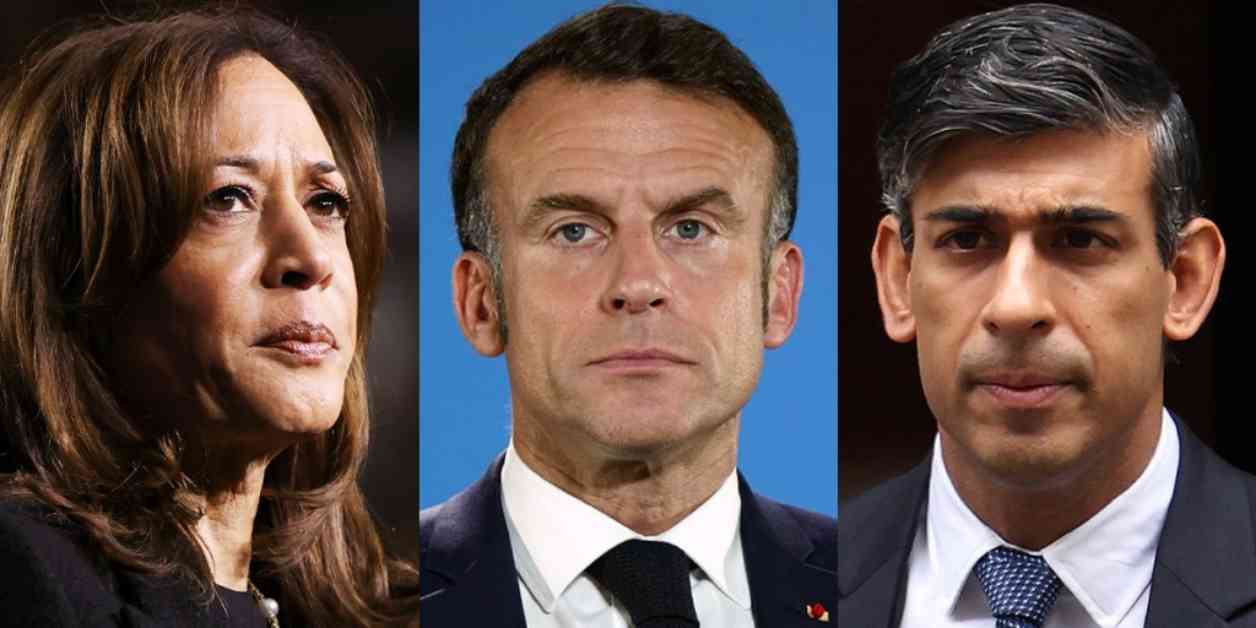Global Elections in 2024: A Year of Change
Dec. 31, 2024, 10:01 AM UTCLONDON — In a year marked by historic elections, the world witnessed a monumental shift in power dynamics. From the defeat of Vice President Kamala Harris to President-elect Donald Trump in the United States to political upheavals in countries spanning India to Austria and Botswana to South Korea, the global landscape has undergone a significant transformation.
The Trend of Incumbent Defeats
According to NBC News, the year 2024 saw more elections than any other year on record, with over 70 nations encompassing 4 billion people participating in the electoral process. The most striking trend that emerged from these elections was the decline in vote shares for governments across the world, both in industrialized and developing countries alike.
Rachel Kleinfeld, a senior fellow at the Carnegie Endowment for International Peace, described 2024 as a “remarkably bad year for incumbents,” highlighting the unprecedented nature of the political shifts witnessed globally.
The Impact of Economic Challenges
One common thread that connected many of these electoral outcomes was the post-Covid economic landscape. The pandemic disrupted global supply chains, leading to rising prices and inflation in various countries. The Pew Research Center’s polling revealed a pervasive sense of economic gloom, with a majority of adults expressing concerns about their countries’ financial well-being.
In countries like the United States and the United Kingdom, the cost-of-living crisis became a central issue, impacting millions of citizens and influencing electoral outcomes. The rising prices of essential goods and services, coupled with stagnant wages, created a sense of financial insecurity among the populace.
Economic Anxiety and Political Shifts
The economic anxiety felt by citizens around the world was compounded by concerns over immigration in some regions. In countries like the U.S., the U.K., and across Europe, right-wing parties capitalized on anti-immigration sentiments, garnering support by promising stricter border controls and immigration policies.
Experts noted that economic hardships and high levels of immigration often fuel the rise of nationalist and populist movements, leading to significant political shifts. The dissatisfaction with traditional political elites and the impact of globalization on local economies played a pivotal role in shaping the electoral outcomes of 2024.
The Global Emotional Recession
Beyond the political ramifications, the year 2024 also witnessed a decline in global well-being, as reported by the California nonprofit organization Six Seconds. Factors such as increased burnout, social media-induced negativity, and a sense of comparison with curated online happiness contributed to a sense of emotional recession post-pandemic.
As citizens grapple with personal and societal challenges, the role of social media in shaping public discourse and political narratives has come under scrutiny. The prevalence of outrage-driven content and the amplification of polarizing opinions have further exacerbated feelings of distrust and dissatisfaction among the populace.
In conclusion, the year 2024 will be remembered as a turning point in global politics and societal well-being. The interplay of economic challenges, immigration concerns, and emotional turmoil has reshaped the political landscape, signaling a need for leaders to address the evolving needs and aspirations of their citizens in the years to come.





















